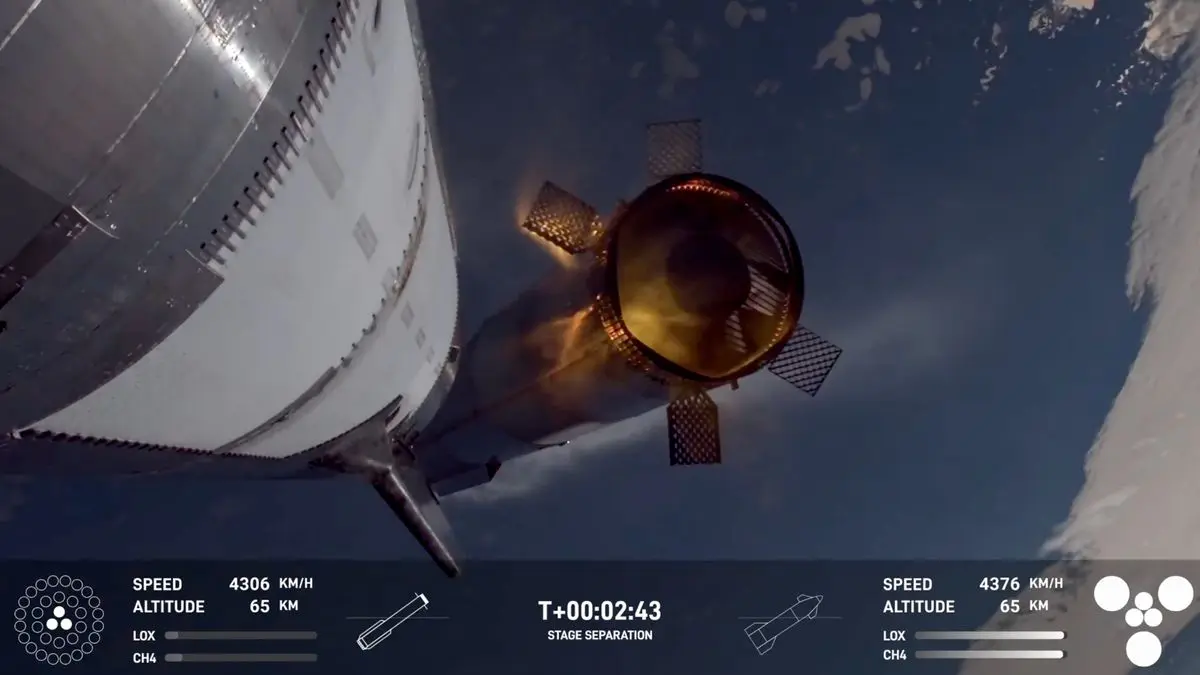It’s their 7th launch and they’re still fighting issues with keeping the fuel where it should be. Elon has successfully created a machine that can kill any number of astronauts in sub-orbit and land to do it all over again. How is anyone not getting this? I’ll never forgive him for taking back intellect on space travel to the 1950’s .
There are plenty of legitimate reasons to hate Musk. Bashing spacex’s safety isn’t one of them, because falcon 9 has the best safety record in the history of orbital launchers. They launch astronauts all the time, and have never had a single mishap in a manned flight. They’re even the people who are going to rescue the astronauts stranded by Boeing’s screw-up, which I suspect makes them the only spaceflight organisation which is going to have safely landed more people than they launched.
Also, a fuel leak doesn’t imply something wasn’t fastened correctly. If that were the case it would have been leaking on the launch pad. Much more likely something was damaged by vibration or heat during the flight
Also, a fuel leak doesn’t imply something wasn’t fastened correctly. If that were the case it would have been leaking on the launch pad. Much more likely something was damaged by vibration or heat during the flight
Two words: Dynamic load
Also Falcon =/= Starship. They demonstrated true excellence with that one, it’s even more amazing they’re floundering on this one, and by such a low bar.
Dynamic load on the plumbing connections, where loads will be dominated by hydrostatic pressure, leading to a failure near the end of a burn when there weren’t any engines starting or stopping to generate transient pressures? Not likely.
And they really aren’t foundering. They’re trying to do something very difficult, which nobody has ever achieved before, and losing the some of the first handful of rockets each time they try to crack a major new milestone is entirely within expectations. They’ve been deliberately weakening parts of the vehicle specifically to push it to the very limit, which doesn’t sound like the strategy of a team which is worried about blowing a few of them up.
Since someone is likely to point out the space shuttle, I’ll point out in return that people at the time were proudly proclaiming that it was the most complex machine ever to fly (by which they meant, “most distinct parts”) as if that were an achievement rather than a monumental failure of engineering. It tried to do what Starship is trying to do, and it failed.
Wasn’t the first shuttle launched 45 years ago? Or is this talking about something else?
I honestly haven’t been paying that much attention since the '90s, but to this casual observer it looks like it has taken 45 years to find a different way to reach low earth orbit.
The space shuttle flew, that wasn’t the problem. It was supposed to be a fast and cheap way to launch things into low earth orbit. They were talking about flying once a week. In reality all the complexity made it very expensive to build and maintain, and very prone to failures.
Starship is also attempting to be cheap and fast. They haven’t achieved that yet, but they’ve come a long way and can pretty convincingly claim to have achieved several of the things they’ll need to do. Only time will tell if they actually accomplish what they’ve set out to do
I’m probably being annoying, but I’m a lapsed space/astronomy nerd. And I’m old.
When I think of cheap and fast, I think of the soyuz program.
It’s just that 30 years ago I heard so much public boosterism about the promise of private space flight and nothing much of substance has seems to have materialized in the subsequent 30 years. Older nerds that I knew (in their 30s or 40s at the time) were pretty skeptical of that '90s narrative. To be fair, most of them worked at Fermilab or Argonne NL rather than NASA. It’s not exactly an insider’s view. It was just nerd gossip overheard by a teenager.
I was born into a world where people had been to the moon a few years earlier. They had launched Voyager, Mariner, and that Venus one. My family ate weekend breakfast at a restaurant called Skylab (it was shaped like it). The shuttle flies. Shuttle explodes. Shuttle flies again. All before I graduated middle high school.
Had to look that last one up. 1988. It seemed like an eternity at the time.
Thirty-five years later?
There certainly was a lot of scepticism early on in SpaceX’s history. They had to fight political pressure just to take part in the commercial launch program, and had to take NASA to court and argue (successfully) that they hadn’t followed their own rules when they rejected SpaceX’s bid.
They seem to have gotten over that now. Presumably it’s difficult for anyone to argue they can’t do the job when they launch more rockets than the whole rest of the world combined, and they (eventually) delivered on the commercial crew program while the “safe” (and much better paid) pick, Boeing, seems to be very publicly failing and considering cutting their losses.
As for Soyuz, I’m not sure how much those rockets and capsules actually cost so I can’t perform a direct comparison. It must be cheaper though, because they stole all the business for commercial launches from Roscosmos and left them with a serious budget problem. They charge about $60 million for a basic Falcon 9 launch, and they’re making huge profit at that price. We won’t really see the real cost of the rocket until someone builds something which can compete with them for business, because they’re really the only player worth mentioning in their weight class for anyone who doesn’t have ulterior motives (such as governments who want to support their own launch industry)
What I can say for sure is they never came even close to the launch rate of Falcon 9. I think it took something like 8 years, off the top of my head, for total Falcon 9 launches to exceed the number of Soyuz launches and the number of launches per year is still increasing.
Goalposts cannot contain him!
I’ve moved no goalposts.
You claimed they were floundering, and I responded with an argument that the rockets exploding isn’t evidence of floundering, it’s an engineering choice to find the limits of their design by pushing a real rocket until it reaches those limits (rather than spending a decade analysing the problem to oblivion).
It’s quite instructive to compare spacex to blue origin in that regard, actually. Both companies are about the same age, but blue origin spent that time designing while spacex spent it flying. The result is that blue origin reached orbit for the first time just this week, after about a decade of effort, but their first launch went pretty well (although not perfectly, since the booster crashed rather than landing the way it was supposed to). Spacex, meanwhile, blew up their first few rockets trying to reach space (I’m referring to the early falcons now, not starship), and blew up quite a few more trying to master landing them again, but they spent most of that decade developing experience in actual flight as a result (not to mention having a sustainable income, and totally dominating the launch industry).
I think it’s difficult to make a good argument that spacex blowing up rockets means that what they’re working on isn’t going to work
And how did falcon get to where it is today?
Comparing a now well tested design with a great track record to a still experimental design that’s trying to push the limits isn’t really fair. It would be more valid if Space-X had decided to stop at a certain point and declare it good for operation and had lost a few payloads. That’s not what’s happening.
Does landing more people than they’ve launched mean they get a bit of a buffer? You can lose a couple and still be at 100% people returned.
I’ve been saying for years now that SpaceX is a horrible company, just like all other Musk companies. Awesome to see that so many other people are seeing Musk for what he is: a scammer
Space flight just isn’t as interesting when it’s for profit.
“Elon musk says.”
I’ll wait for independent verification.
The Apollo project launched the roughly comparable Saturn V rockets 13 times. None of the launched rockets exploded. None of the launched¹ missions led to any loss of life.
The Saturn V was made at a time when all the computing power on the planet put together was less than a middling-power smart phone of five years ago. The rockets and modules were controlled by computers that had less computing horsepower than an average USB charger. And it was more of an experimental rocket system than anything the Apartheid Manchild’s company has put out thus far.
Space Karen’s company has launched their pretentiously-named “Starship” system seven times. Four of them ended up exploding, and one of them broke up the launch pad so badly that it endangered life and limb and did damnable violence to a fragile ecosystem with endangered species.
And yet the fanbois trumpet the “success” of a mission that has not yet actually made it to LEO, has not done any of the things it was supposed to have had done in 2022 for NASA’s Artemis mission and going back to the moon.
And this turd wants to send people to MARS!?
¹ Important word here. Re-read it before you “well akshuallee” me.
This until people stop getting grifted.
Wikipedia tells me the Saturn V development cost, in 2023 dollars, was about 50 billion. Starship, as of 2023, cost about five billion.
These are test flights. They are done to find problems. They will fail. It’s a totally different approach to the Apollo program.
They literally are blowing up rockets like there is no tomorrow and call it “a process”, and then there are guys like you who literally believe that crap.
SpaceX still hasn’t been able to come to even 10% of what the Saturn V has done, and they have the knowledge of the Saturn V, they have computational power that is beyond what the Saturn V Engineers could even dream of, they have the newer and better materials, they have the newer and better construction method, they have all the countless advantages that the Saturn V engineers didn’t have.
And what do they do? Blow up a launch pad because adding a flame diverter would be too expensive. Blow up a banana over the Indian ocean. Blow up rocket after rocket, and APPLAUDE AND CHEER, like WTF? They set goals of *getting off the launchpad, anything else is extra"
This is what billions of tax payer dollars has given you, the guy who will be in charge of government efficiency, lol
Meanwhile there is blue origin too and oh look, no boom! It. Just. Worked.
elon musk is a scammer
Well the booster fouled the landing, but that’s still way ahead of SpaceX who fouled how many landings (not Starship) before one finally did so without exploding?
Saturn V was that expensive because the sheer volume of calculations that had to be done were done BY HUMAN BEINGS. Electronic computers weren’t up to the task. Salaries were a huge expense item because computers (in the original sense of the word) liked to be paid.
SpaceX has the advantage of having computers literally four orders of magnitude more powerful in every one of their engineer’s pockets. Plus computers far more powerful than those available at a very low price. Calculations that took thousands of person-days (daily!), with the commensurate salaries of the people doing them, are now done in seconds.
There is simply no excuse—beyond the toxic “move fast and break things” ethos of modern “tech”—for constantly having rockets blow up in this day and age. The simulations and static test analyses and such that were once such an expensive chore are orders (note the plural) of magnitude cheaper today than they were in the 1960s.
It’s just incompetence and arrogance.
Also I note with interest that from inception (1962) to first full stack flight (which was also the first flight of any component) was only five years.
Starship was officially announced in 2012 and its first flight (of sorts, if you call "spinning out of control until it disassembled itself a “flight”) was in 2023.
ELEVEN FUCKING YEARS and SpaceX still hadn’t made a surviving launch. For reference, eleven years after the Saturn V was started, the Saturn V had made 13 flights, all successful, doing its final flight that year boosting Skylab into LEO. (You know, that place that SpaceX hasn’t even yet put an empty Starship into.)
(P.S. Even at 50,000,000 dollars that’s less than 1/8 of the Apartheid Manchild’s net worth.)
why tho… why would they do an article on a guess by the ceo guy… thats so weird in this context
Dont ask questions to a grifter, just see the grift. Whatever actually blew it up was way worse. Now that he’s set the record tho, it doesn’t matter. It HAD to be him.
Wasn’t this meant to bring back those stranded astronauts next month? Guess they better they extend their travel insurance. Good thing Elon doesn’t have a history of fishing for publicity with bold statements and little follow through.
No, that’s a different and largely unrelated rocket.
The one which will be bringing back the astronauts is literally the rocket with the best track record in history, and usually flies at least once a week.
This explosion was a prototype for a new rocket, which has only been sent to space a handful of times
Please forgive the naive question
If it goes every week, why does it need to wait to go get them? I’m thinking it has to do with something like flight plans, but I have no idea
Because sending an entire rocket up to collect them would be very expensive, so NASA would prefer to leave them up there until the next routine flight so that they can send other things up and down with them on schedule.
There might also be limited space on the space station to dock a capsule. There are only so many docking ports, and I think they’re often full
The most frequent launches are carrying Starlink satellites on an adapter, not a Dragon capsule. The capsule may need to be refurbished or manufactured, there may not be a suitable mission available to be bumped, etc.




